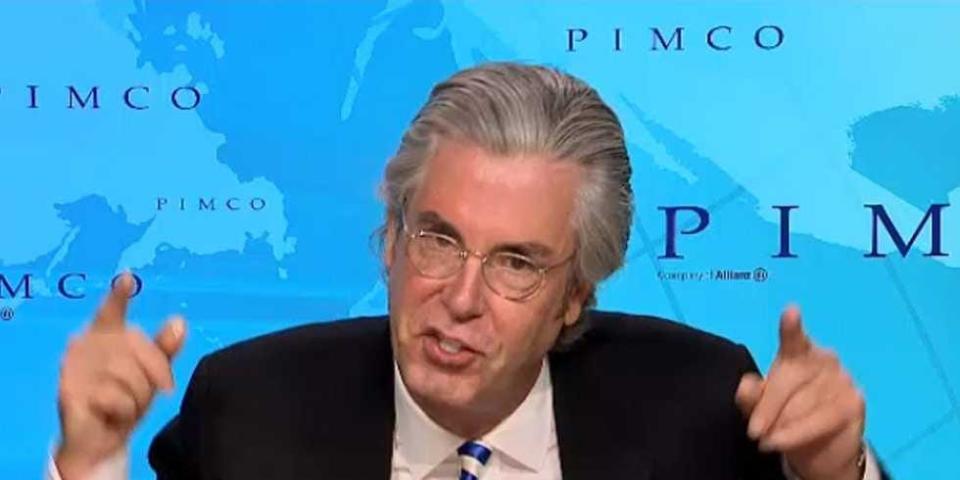The Fed will keep issuing 75-basis-point hikes until 'something cracks' in the data, former PIMCO chief economist says

The Fed will likely keep hiking rates by 75 basis points until "something cracks" in the economic data, Paul McCulley warned.
He pointed to the Fed's watchfulness on the labor market and inflation, suggesting there could be a prolonged tightening cycle ahead.
But a "crack" could first hit markets before it hits the real economy, he said, warning of a potential downside for investors.
The Fed will keep hiking rates by 75 basis points until "something cracks" in the data, former PIMCO chief economist Paul McCulley told CNBC.
His forecast for Fed rate hikes came shortly after September's inflation clocked in at 8.2%, slightly above expectations of 8.1% while core inflation accelerated to a 40-year-high, dashing the market's hopes for a Fed pivot. The central bank has already raised rates five times this year, including three consecutive increases of 75 basis points.
McCulley previously predicted the central bank will issue a 75-basis-point hike in November followed by a 50-basis-point rate hike in December, but revised that upward in light of rising inflation.
"I don't have confidence in that anymore," he said, adding he believed the Fed would "keep on keeping on."
"Essentially, keeping on this 75-point clip until something cracks. And that doesn't necessarily mean the financial system, as we've been hearing a lot of chatter about, but in the data, actually. The inflation data. I think even more importantly, the employment data."
He pointed to the Fed's September meeting minutes, where central bankers suggested they would not stop hiking rates until labor market conditions began to ease. In particular, officials believed the unemployment rate was too low, and needed to be pushed higher in order to get a grip on spiraling prices.
Fed officials have also expressed determination to bring inflation back down to 2% before pivoting their monetary policy, although McCulley believed that would be difficult, and supported a 3% inflation target instead. That's because inflationary pressures have spread from the goods sector to the services sector of the economy, which is being hammered by pent-up demand as well as a tight labor market.
"So the Fed's mission to get inflation down, now that it's shifted to the services side, is even harder than it was when it was concentrated in the goods side," McCulley said, suggesting the Fed's tightening cycle may be prolonged.
"But if they can crack this economy, and not get a severe recession, and get inflation back down to a three [percent] handle, I think they would declare a victory all day long," he added.
However, he warned a "crack" could first hit the market, since developments on Wall Street often run ahead of changes in the real economy. That could mean a near-term downside for investors, who have already been jittery about inflation and saw a steep sell-off over the past month.
Read the original article on Business Insider
